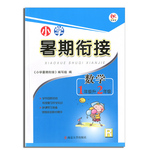题目内容
Jealousy is a very common problem in daily life. It’s everywhere. For example, if someone does better than you, you will get annoyed because you want to be No. 1. We may become jealous of a best friend’s top marks in an exam, or of the girl in art class who is praised by the teacher all the time. We get annoyed because these good things are happening to someone else but not to us.
It’s bad to feel jealous. We should be pleased with the things we have. But we still wish we had the money of this person and the talent of that person. Instead of sharing their happiness, we just feel jealous and unhappy with ourselves. And, too often, these feelings are expressed by speaking ill of the people we envy.
However, envy is also a kind of compliment to others. We see that other people have styles and talents different from our own. By comparing ourselves with others, we can know what we lack. And we can turn this comparison, the envy of others, into a kind of power.
Therefore, being a bit jealous of others lets us know what we are like and what we want to be like. It can push us to become what we really want to be.
根据短文内容,从A、B、C、D四个选项中选出能回答所提问题或完成所给句子的最佳答案。
- 1.
According to the first paragraph, why do you get annoyed?
- A.Because the teacher dislikes others
- B.Because others do something better than you
- C.Because you are an annoying person
- D.Because you want to be No.1 in the exam and you do
- A.
- 2.
The Chinese meaning of the underlined part “speaking ill of” probably is “_____"
- A.赞美
- B.说…的坏话
- C.憎恨
- D.说…病了
- A.
- 3.
What should be the right attitude towards jealousy?
- A.It’s a good thing
- B.It’s just a bad thing
- C.It’s a kind of compliment to others
- D.It makes us know what we are like and what we want to be like
- A.
试题分析:本文论述了人们常有的一种心理—嫉妒,当人们看到别人取得了比自己好的成绩时,就产生了嫉妒心理,有可能在背后就说这个人的坏话,本文最后告知我们嫉妒也使我们了解自己需要的东西。
1.细节理解题。根据We get annoyed because these good things are happening to someone else but not to us.因为别人比你强所以心里烦恼,故选B。
2.词义猜测题。根据Instead of sharing their happiness, we just feel jealous and unhappy with ourselves.不是分享别人的快乐而去说别人的坏话,故选B。
3.细节理解题。根据being a bit jealous of others lets us know what we are like and what we want to be like.故选D。
考点:人生百味类短文阅读。
点评:细节理解题可以分为集中型细节理解题和分散型细节理解题。集中型:就文章的单个细节提问,答案在原文中出现的位置一般也位于单句话或几句话中。因为具体细节不同,出题形式千变万化,因题而异。分散型:题目涉及到文章某一段或几段,甚至贯穿全文的各个位置,需要考生寻找文章中的多个细节。请注意,分散型细节理解题并不意味着题目的正确答案出现在文章的不同位置,正确答案往往也是关于文章的某一个句子或细节。只是说文章的干扰选项是关于不同的细节,需要我们在定位的时候阅读某一个区域。

 学而优暑期衔接南京大学出版社系列答案
学而优暑期衔接南京大学出版社系列答案 Happy holiday欢乐假期暑假作业广东人民出版社系列答案
Happy holiday欢乐假期暑假作业广东人民出版社系列答案Women consistently lie on social networking sites such as Facebook or Twitter to make their lives appear more exciting, a survey has found.
Researchers found that at least one in four women exaggerated or distorted what they are doing on social media once a month. The survey of 2000 women found they mostly pretended to be out on the town, when in fact they are home alone, and embellished about an exotic holiday or their job.
The most common reasons for women to write “fibs” included worrying their lives would seem “boring”, jealousy at seeing other people’s more exciting posts and wanting to impress their friends and acquaintances.
Psychologists suggested that as people attempt to “stay connected” on social media, they can in fact “paradoxically” be left “more isolated”. They also said that the “more we try to make our lives seem perfect, the less perfect we feel”.
According to the OnePoll survey, one third of women surveyed admitted to “dishonesty” on social media sites such as Facebook and Twitter at some stage.
Almost one in four admitted to lying or exaggerating about key aspects of their life online between one and three times a month while almost one in 10 said they lied more than once a week.
Nearly 30 percent of women lied about “doing something when I am home alone”, almost a quarter overstated their alcohol consumption while one in five were not truthful about their holiday activities or their jobs. Almost one in five women even lied about their “relationship status”.
“We work very hard presenting ourselves to the world online, pretending and attempting to be happy all the time which is exhausting and ultimately unfulfilling,” said Dr Michael Sinclair, a leading British consultant psychologist.
“Omitting the less desirable imperfections of our lives from the conversations with our `friends` online leads to less opportunity to feel empathized with(与…产生共鸣), resulting in a greater sense of disconnection from others.”
The survey was commissioned by Pencourage, a new anonymous “diary-style” social media website.
【小题1】Which of the words below is closest in meaning to the underlined word “fibs” in Para 3?
| A.life experiences | B.short stories |
| C.careful thoughts | D.insignificant lies |
| A.hopes to make more friends | B.envies other people’s exciting life |
| C.feels lonely at home | D.gets tired of the boring life |
| A.avoiding conversations with friends |
| B.describing her holiday activities |
| C.leaving out the imperfections in life |
| D.overstating her trouble at work |
| A.eventually make one’s life more exciting |
| B.actually lead to a sense of isolation |
| C.really improve one’s sense of happiness |
| D.scarcely have any influence on relationships |
William Shakespeare is the most famous playwright (剧作家). Although he died in 1616, people still go to see his plays. Among the most popular are Romeo and Juliet, A Midsummer Night’s Dream and Hamlet — the story of a prince who struggles to respond to the crimes around him.
Shakespeare, who was born in 1564, was an actor as well as a writer. Most of his ideas for plays were taken from history, people’s conversation, ancient stories, and also from other writers. He wrote not only about kings and queens and princes, but also about friends and ordinary people. He wrote about the cruelty of war and the bravery of heroes, as well as about jealousy, joy, hate, ambition and love. His stories live on. The tragedy Romeo and Juliet was reborn as the musical West Side Story and more recently as the movie Romeo and Juliet with the wonderful performance of Leonardo DiCaprio and Claire Danes.
He invented a number of great characters: powerful magicians, thrilling witches, smart women and both wise and wicked men. He also invented some great phrases. If you’ve ever said, “Oh, for goodness sake!” you can thank Shakespeare for that. “To be, or not to be: that is the question,” Hamlet says. “Good night, good night. Parting is such sweet sorrow, that I shall say good night till it is morrow,” says Juliet to her Romeo.
Don’t be surprised if you don’t understand everything when reading Shakespeare or watching one of his plays because the meanings of many words have changed over the years. And Shakespeare’s characters speak in poetry, so their speeches can be complicated.
It does help to find out a little bit about the story before reading a Shakespeare play. It’s worth the effort. As Shakespeare wrote, “All the world is a stage.” And in his plays you’ll find that an entire world is waiting for you.
1.Shakespeare created the following characters EXCEPT ________.
|
A.Juliet |
B.Hamlet |
C.Claire Danes |
D.Romeo |
2.From Paragraph 3 we can learn that ________.
|
A.most of the characters created by Shakespeare were negative ones |
|
B.most of the phrases used today were invented by Shakespeare |
|
C.“Oh, for goodness sake!” is what Juliet says to Romeo |
|
D.Shakespeare contributed greatly to the development of English |
3.Which of the following is a reason why it’s difficult to understand some of Shakespeare’s plays?
|
A.There are many new words in his plays. |
|
B.He wrote his plays using uncommon words. |
|
C.The characters in his plays speak in poetry. |
|
D.Most of the words in his plays are outdated. |
4.We can infer from the passage that ______.
|
A.most of Shakespeare’s plays have been made into films |
|
B.language changes with the development of society |
|
C.Shakespeare made lots of money from his works |
|
D.it is more useful to read Shakespeare’s works than to watch them |